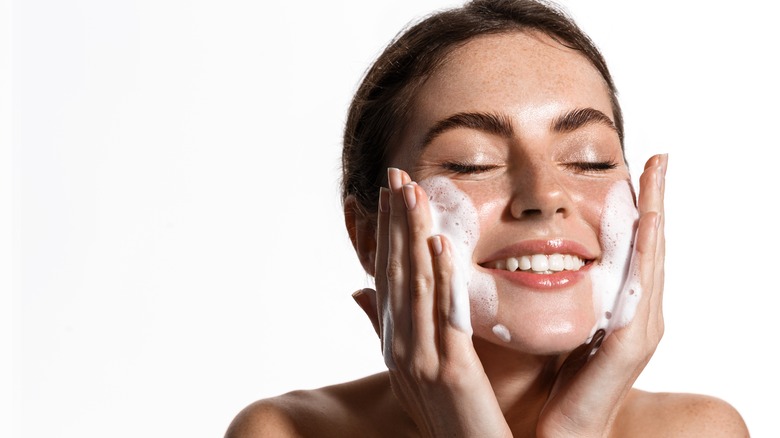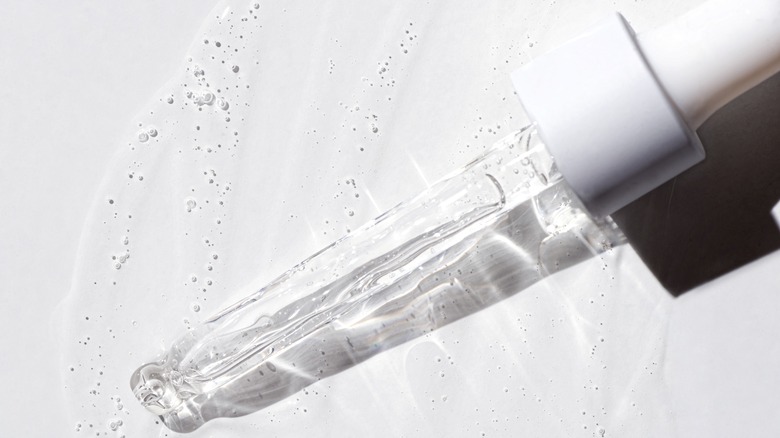Are Noncomedogenic Products Better For Your Skin?
With the proliferation of skincare and makeup products on the market, many people are seeking products formulated to meet their specific skin care needs. The popularity of noncomedogenic products has likely increased over time as more people have become aware of the role clogged pores play in the development of acne and other skin problems. To understand this role, it's first important to know what causes clogged pores.
According to Medical News Today, pores are small openings in the skin that allow oils (also known as sebum) to be released onto the skin's surface. Sebum is produced by the sebaceous glands — found in the skin all over the body, but most abundant on the face and scalp, per Cleveland Clinic. Sebum helps to keep the skin moisturized and healthy. However, pores can become clogged when the production of sebum is increased or when dead skin cells accumulate, which can cause various skincare problems.
There are several factors that can contribute to the development of excess sebum and clogged pores. One common factor is hormonal changes. During puberty, the body's production of hormones called androgens increases, which can stimulate the production of sebum and lead to clogged pores. Hormonal changes during pregnancy, menopause, and the menstrual cycle can also affect the skin.
Are noncomedogenic products better for your skin?
According to the Cleveland Clinic, clogged pores can lead to the development of blackheads, and whiteheads, which are small, raised bumps that often result from the buildup of sebum and dead skin cells. Clogged pores can also cause acne, which is a more serious skin condition that occurs when pores become infected with bacteria. Noncomedogenic products are specifically designed to not clog pores and are often recommended for people with acne-prone skin, or others who may be prone to developing blackheads and whiteheads, per Medical News Today.
Some skincare and makeup products, especially those that contain heavy oils, are comedogenic — meaning they are likely to clog pores and can contribute to the development of clogged pores. If you have acne-prone skin or are prone to developing blackheads and whiteheads, it may be helpful to consult with a dermatologist for personalized skin care advice.
Important noncomedogenic and comedogenic ingredients
There is no official list of noncomedogenic or comedogenic ingredients, but common noncomedogenic ingredients include glycerin, dimethicone, cetearyl alcohol, vitamin E, witch hazel, rose water, aloe vera, and carmine (via Medical News Today). On the other hand, most of the ingredients to avoid came from a 1984 study published in the Journal of the American Academy of Dermatology. Common comedogenic ingredients include isopropyl myristate, isopropyl palmitate, butyl stearate, and ethoxylated lanolin.
It is important to note that noncomedogenic does not necessarily mean that a product is good for your skin. Some noncomedogenic ingredients may still be irritating or drying to the skin. For that reason, it's important to choose products that are formulated for your skin type and to be mindful of any ingredients that you may be sensitive to. In general, it is always a good idea to test a new product on a small patch of skin before applying it to your face. This can help you to identify any potential sensitivity or irritation before using the product more widely. If you have any concerns about your skin or the products that you are using, it is always a good idea to consult with a dermatologist or other skin care professional.



